An exciting new project for the region
A Fisheries Science Vessel for the Pacific
A tool to manage and preserve our common resources and ecosystem
|
Why do we need a Fisheries Science Vessel for the Pacific?
|
|
- Managing the sustainability of common marine resources is vital for the Pacific Island countries and territories that rely on them for key ecosystem services.
- Pacific tuna fisheries are of global importance, delivering two-thirds of the world's tuna resources, and it is crucial to maintain the sustainability of regional stocks. Regional fisheries decision making would be greatly weakened without the time series of data provided by continuous scientific experiments conducted onboard a suitable and reliable research vessel. Previously used vessels are in the process of being decommissioned due to their age.
- The largest oceanic region must play a major role in integrated ocean/ climate initiatives.
- Satellite observations need to be complemented by in-situ scientific monitoring to understand the complexity of the planet's largest ecosystem and its response to global warming.
- Properly designed and built for its environment and research goals, an adaptable modern sea-going platform will serve to benefit the Pacific people and the whole planet.
|
|
- back to the top -
|
|
Pacific research vessel project feasibility study
|
The largest ocean needs a Fisheries Science Vessel to support the monitoring of its marine resources and unique ecosystem
|
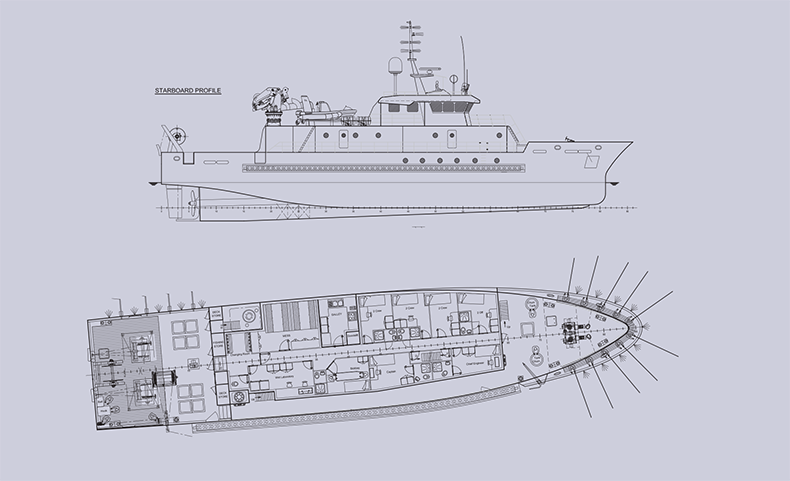 |
To evaluate options for the acquisition, operation and underwriting of operational costs for an adaptable research vessel dedicated to regional marine monitoring needs, a study has been implemented and completed in 2020 by external expert consulting firm F&S (http://fs-marine.fr/en/contact/).
The final report includes a detailed analysis of best vessel flag choice, appropriate management scheme, operating costs, and risk assessment, in addition to a review of the five technical proposals received from the 23 shipyards invited to provide proposals.
Although in charge of ensuring the sustainability of over half of the world's tuna and the largest oceanic ecosystem on the planet, the countries and territories of the Pacific Islands do not have consistent access of a suitable research vessel to support these vast responsibilities.
The in-country available fisheries research vessels are limited in size and range and could only supplement data for near-shore resources management and provide training for small-scale fishers.
A review of regional research vessel availability and capabilities was implemented in 2019. This demonstrated that there is no fisheries research vessel operating in the Pacific Ocean that possesses the characteristics to meet the specifications required to support sustainable tuna stock management.
The regional research plate-form project will fill this gap, monitoring this part of the world for the next 30 years, providing scientific information at a critical moment in time.
|
The Pacific research vessel will have the capacity to complete many missions
|
| Enhance the sustainability of the biggest tuna fishery |
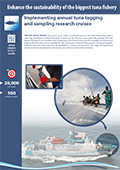 |
Implementing annual tuna tagging and sampling research cruises |
| download mission sheet |
|
| Monitoring the evolution of the largest oceanic ecosystem |
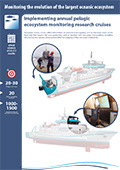 |
Implementing annual pelagic ecosystem monitoring research cruises |
| download mission sheet |
|
|
|
|
| Increase country food security |
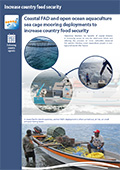 |
Coastal FAD and open ocean aquaculture sea cage mooring deployments to increase country food security |
| download mission sheet |
|
|
|
|
|
|
|
- back to the top -
|
|
Region, Partners and Collaborators
|
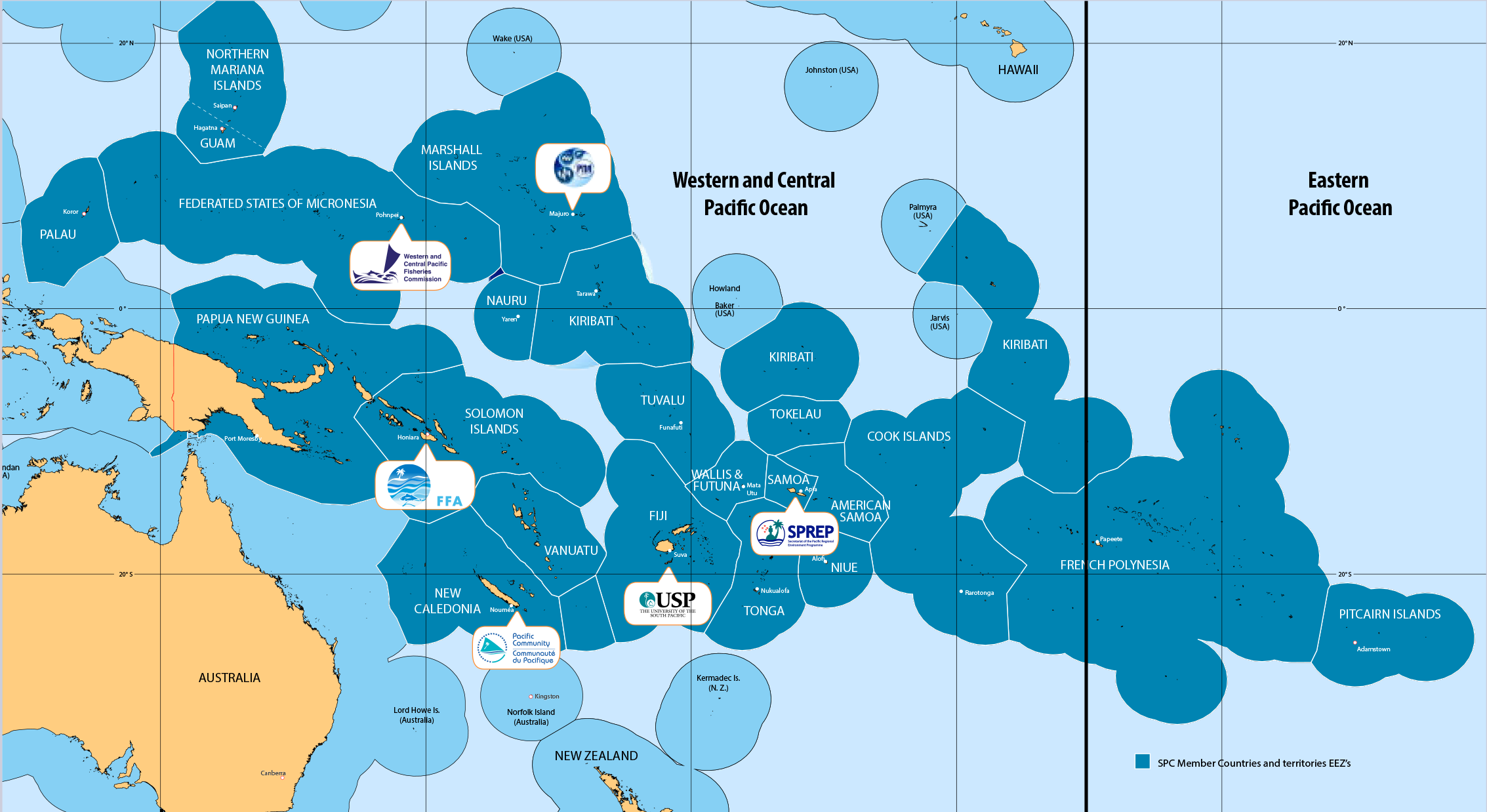
|
 |
 |
 |
The Pacific Community
Based in Noumea, New Caledonia, SPC is an international development organisation owned by its 27 member countries and territories across the Pacific region. It mobilises scientific and technical knowledge to support 20 thematic sectors, including climate, fisheries and geosciences.
About 500 staff |
The Pacific Islands Forum Fisheries Agency
Based in Honiara, Solomon Islands, FFA provides expertise, technical assistance and support so its 17 members can take informed sovereign and regional decisions about their tuna resources and their sustainable management through the WCPFC.
About 80 staff |
Western and Central Pacific Commission
Based in Pohnpei, Federated States of Micronesia, the WCPFC is a regional fisheries management organization in charge of ensuring, through effective management, the long-term conservation and sustainable use of highly migratory fish stocks (tunas, billfish, marlin) in the western and central Pacific Ocean.
About 35 staff |
| . |
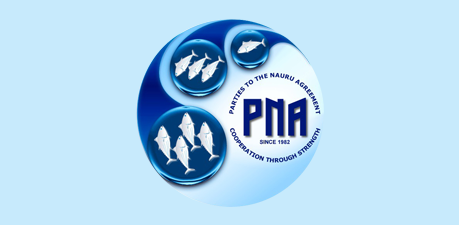 |
 |
 |
Parties to the Nauru Agreement
Based in Majuro, Marshall Islands, the Parties to the Nauru Agreement comprise FSM, PNG, Kiribati, Palau, Solomon Islands, Marshall Islands, Nauru and Tuvalu, and Tokelau. They control the world's largest sustainable tuna purse seine fishery and work to optimize economic benefits for their members.
About 9 staff |
Secretariat of the Pacific Regional Enironment Programme
Based in Apia, Samoa, is in charge of protecting and managing the environment and natural resources of the Pacific.
About 100 staff |
The University of the South Pacific
With its main campus located in Suva, Fiji, USP is a regional university with 12 campuses accross the Pacific, providing higher education and research in the Pacific islands . |
|
- back to the top -
|
|
Managed by the region for the region's need
Managers from the region support the Pacific Research Vessel Project
|

Feleti Teo
Executive Director, Western Central Pacific Fisheries Commission
"The core work of the WCPFC as the regional fisheries management organization for the western and central Pacific Ocean is to assess accurately the status of the tuna stocks and the proposed research vessel would be a critical asset to enable the WCPFC to continue to undertake its core work." |
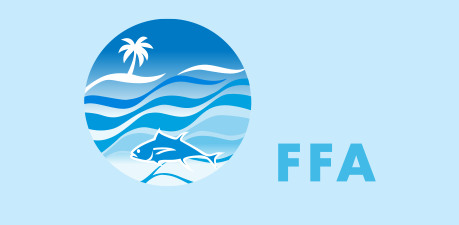
Dr Manu Tupou-Roosen
Director-General, Pacific Islands Forum Fisheries Agency (FFA)
"The proposed Pacific fisheries and oceanographic research vessel will be a critical asset for the region to enhance its capability to undertake independent research to manage our valuable tuna resources." |
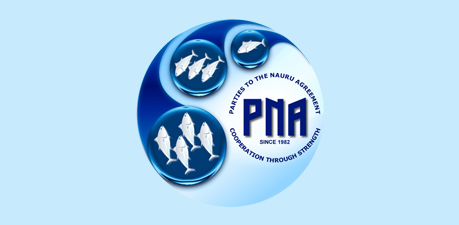
Dr Sangaalofa Clark
Chief Executive Officer, Parties of Nauru Agreement Office (PNA)
"It is time the Pacific Islands region had its own fisheries and oceanographic vessel, designed for the research and capacity building purposes that are so important to the effective management of our fisheries and ocean resources, upon which our futures substantially depend. For the countries that are members of the PNA, the tuna tagging programmes for which this vessel is substantially designed, are vital for continuing the successful management of the regional tuna fisheries and resources." |
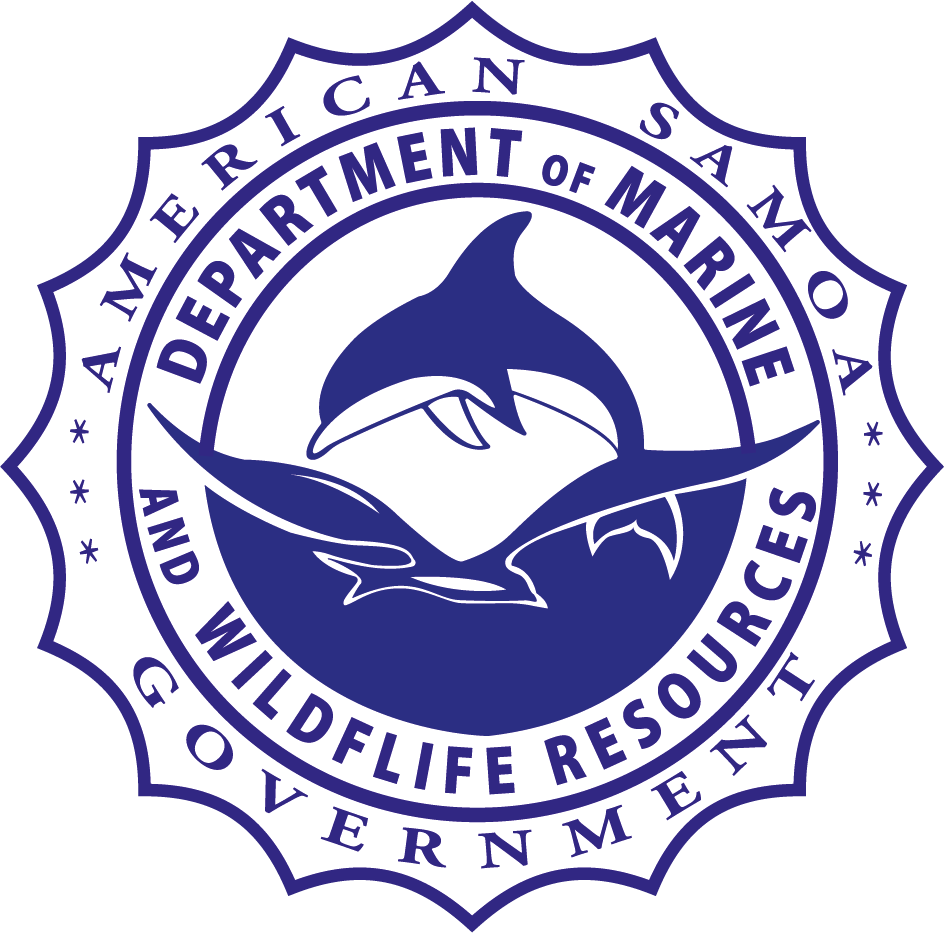
Taotasi Archie Soliai
Director, Department of Marine and Wildlife Resources, American Samoa
"The vessel can also support research for other stocks such as bottomfish deep snappers that are also culturally and economically important to American Samoa and other south Pacific countries." |
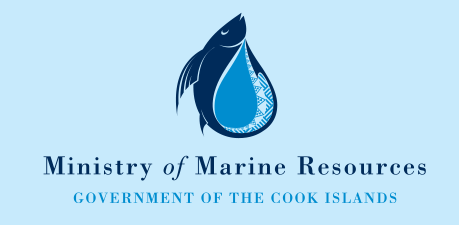
Pamela Maru
Secretary, Ministry of Marine Resources, Cook Islands
"The interest for us here in the Pacific is ensuring that we have sustainable stocks so that in the future we can continue to benefit from these resources, SPC's tuna tagging programme is critical in our understanding of the Western and Central Pacific tuna fisheries." |
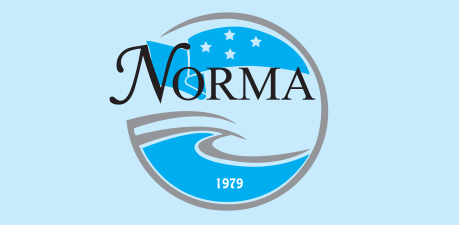
Eugene Pangelinan
Executive director, National Oceanic Resource Management Authority, Federated States of Micronesia
"We are supportive of building-up human capacity and in platforms that support such work to ensure ownership of research data and outcomes are also attributed to the Small Islands and Development States including national and regional organisations." |
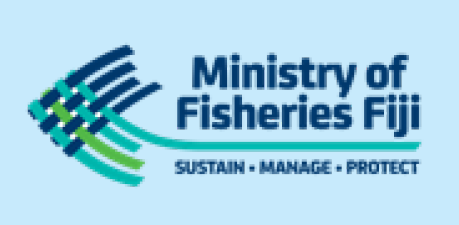
G. P. N. Baleinabuli
Permanent Secretary for Fisheries, Fiji
"We welcome this initiative and take pride in this project as it will be owned and operated by the region." |
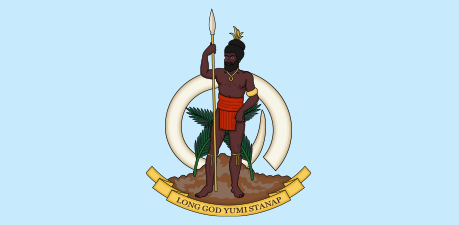
Moses Amos
Director General Ministry of Agriculture, Livestock, Forestry, Fisheries and Biosecurity, Vanuatu
"As the region is confronted with impacts of climate change, the vessel, as a research platform, will play a critical role in capacity building for the region" |
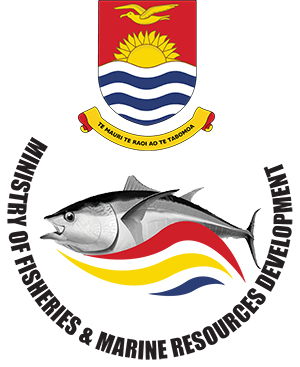
Dr. Agnes Yeeting
MFMRD Kiribas, Secretary
"Kiribati support the significance for the region in having its own vessel to conduct fisheries work and collect valuable information related to tuna stocks and other fisheries." |
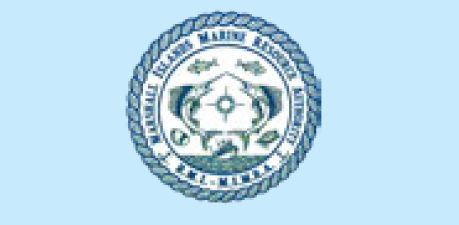
Glen Joseph
Director, Marshall Island Marine Resources Authority
"The proposed research vessel is a critical asset for the region to continue to collect fishery independent information to assess the status of our tuna stocks. Without the capacity to independently collect data and undertake ecosystem research the ability of the region to develop strategies to adapt to climate and other disturbances will be significantly disadvantaged." |
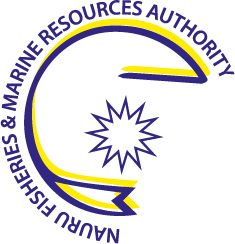
Mr Charleston Deiye
Chief Executive Officer, Nauru Fisheries and Marine Resources Authority
"A regional fisheries research vessel owned and operated by the Pacific Island countries and territories will give us the capacity to conduct our much needed independent research." |
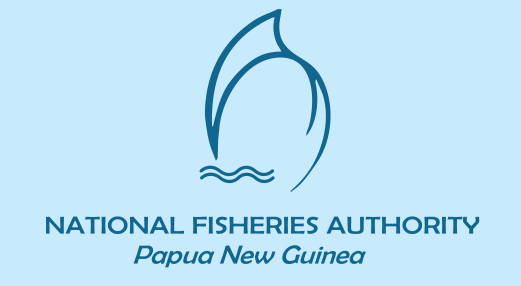
Justin Ilakini
Managing Director, National Fisheries Authority, PNG
"A fisheries and oceanographic research vessel is a critical asset for the region to build its capacity to undertake its own independent research to manage its natural resources." |
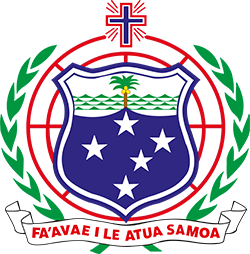
Tilafono David Hunter
Chief Executive Officer, Ministry of Agriculture and Fisheries, Samoa
"We see that this research vessel is critical in collecting fisheries independent data and information to improve our knowledge on our tuna fisheries stock which supports our economic development, livelihood and food security." |
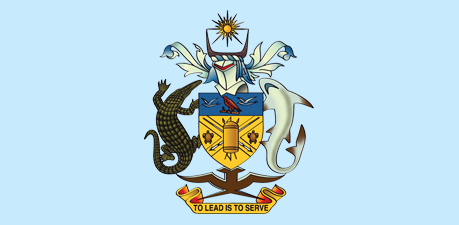
Dr Christain Ramofafia
Permanent Secretary Ministry of Fisheries, Solomon Islands
"Acquiring a research vessel is important for the work of SPC, especially in datacollection, stock assessment and other ecosystem research for the region." |
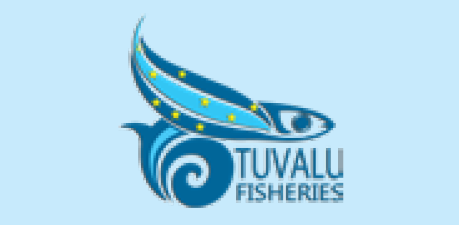
Samasoni Finikaso
Director of Fisheries Ministry of Fisheries, Tuvalu
"A dedicated research vessel, owned and operated by our own regional organization SPC, is now a necessity." |

Feleti Tulafono
Director, Tokelau Fisheries Management Agency
"As the region struggles with impacts of climate change, the vessel, as a research platform will play an all too important role in capacity building for the region." |
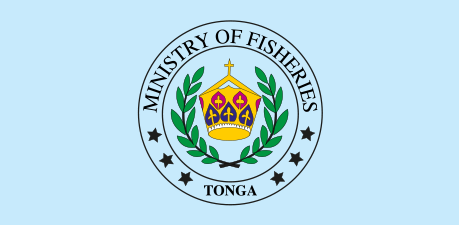
Dr Tuikolongahau Halafihi
Chief Executive Officer, Ministry of Fisheries, Tonga
"A Pacific fisheries and oceanographic research vessel is a critical asset for the region to build its capacity to understand its own independent research to manage its natural resources." |
.. |
|
- back to the top -
|
|
|
 |
|